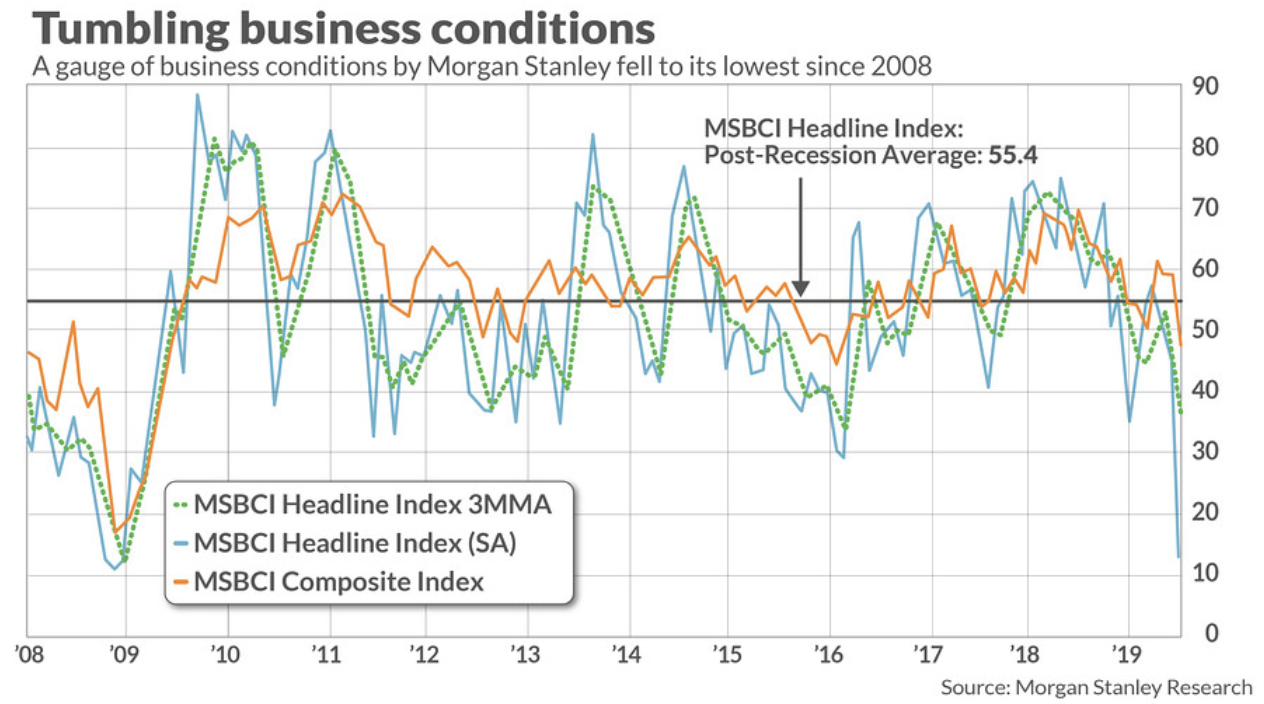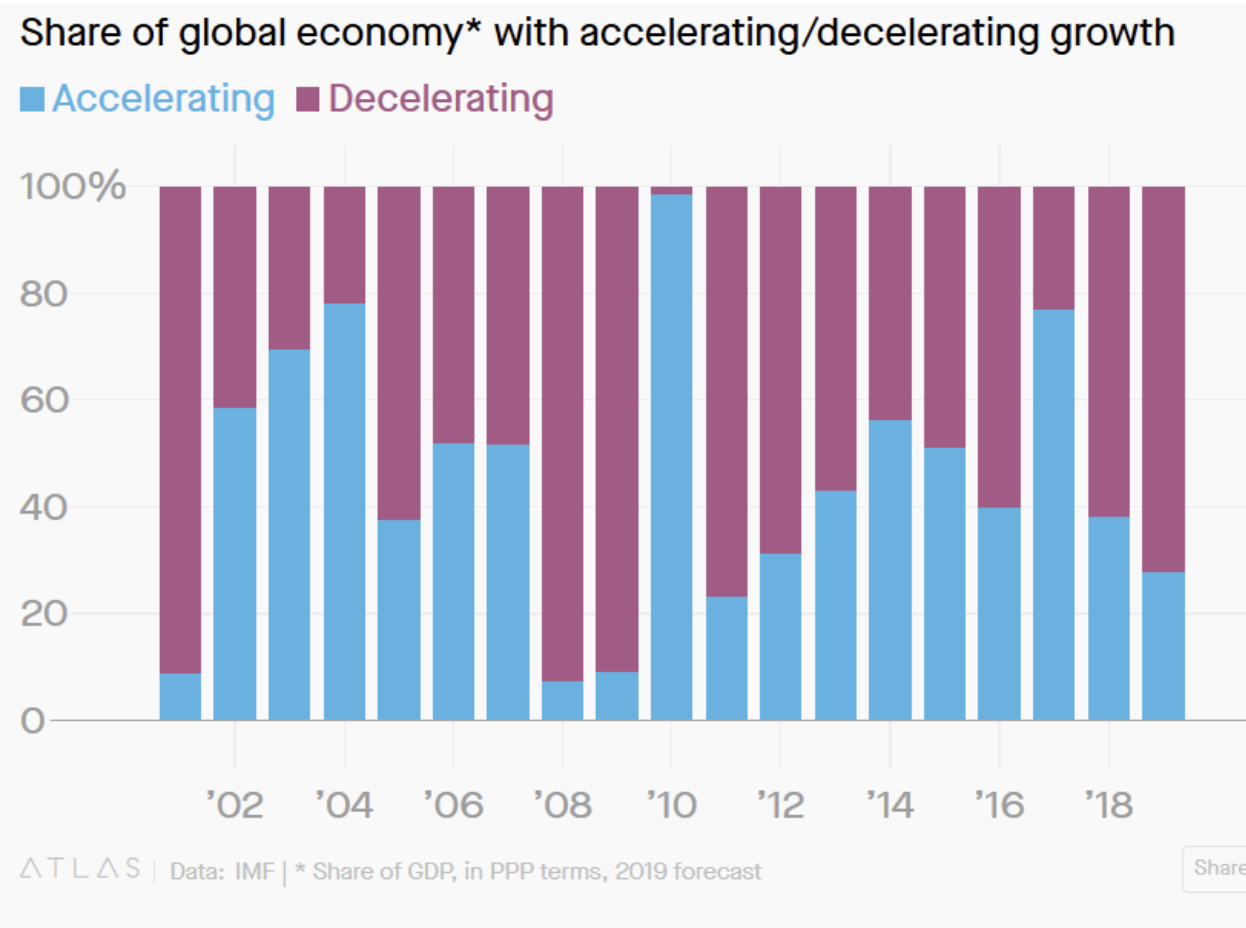Last week, business leaders from more than 600 American companies and trade associations including Costco, Walmart, Levi Strauss, GAP, Foot Locker and Target descended on Washington, petitioning President Trump to quickly resolve the trade dispute with China. This was the latest in a series of petitions by the national ‘Tariffs Hurt the Heartland’ campaign.
The consortium has warned that tariffs are a direct tax on American companies and will lead to loss of jobs and harm millions of American consumers.
Well, if that did not convince the president how dire the situation is, maybe the latest revelation about business conditions descending to crisis levels will.
Morgan Stanley says its proprietary Business Condition Index dropped 32 points last month, marking the sharpest collapse since the 2007-08 financial crisis.

(Click to enlarge)
Source: MarketWatch
Business comes to a halt
The MS report has come hot on the heels of a weak job report released last week. The U.S. employment market decelerated sharply in the month of May, with only 75,000 new jobs created vs. projections for 185,000 thus providing yet more evidence that the economy has hit the skids.
The business leaders are unlikely to get their wish—at least not any time soon. Although Trump has invited Chinese President Xi Jinping to restart trade talks at the G-20 meeting from June 28-29 in Osaka, Japan, expectations for anything solid coming out of it are low. Commerce Secretary Wilbur Ross has downplayed prospects for a major trade deal emerging from the talks saying the most he expects is an agreement to resume trade negotiations.
It could get even more grim.
Related: The $3.2 Trillion Caspian Caper
According to MS, looking at the latest data from the Business Condition Index as well as other metrics that drill down deeper into the markets points to the economic expansion coming to a near-halt in June. Indeed, a cross-section of Wall Street is worried that the market has reached a tipping point, and any shocks could send the global economy reeling into a recession.
Permabear Nouriel Roubini, NYU economics professor, says that even though a hawkish Fed no longer looms large over the market, other major concerns still exist raising the scepter of a recession hitting as early as 2020.
Last year, the professor outlined 10 major downside risks that could potentially lead to a global recession. He has warned that tensions between Washington and Beijing are among the biggest especially if China retaliates by locking out companies like Apple with heavy exposure to the market. The professor has also warned not to expect central banks to come to the rescue again since they are becoming increasingly constrained.
Obviously permabears like Nouriel Roubini with their contra trade mentality have not done themselves much good after missing out on the biggest equities rally post-WWII. This market has been through plenty of shocks since the financial crisis yet it remains resilient and has managed to bounce back from every single one of them.

(Click to enlarge)
Yet, even a broken clock is right twice a day and permabears like Roubini are certain to eventually be proven right.
There’s growing evidence that the world economy has entered a synchronized slowdown with 70 percent of the global economy already cooling off. As Roubini has observed, the slowdown is being caused by a smorgasbord of factors including trade tensions, credit tightening in China, weakness in the EU region and economic turmoil in Turkey and Argentina.

(Click to enlarge)
Source: Quartz
The unfortunate part is that monetary and fiscal interventions including private-sector backstops that helped to pull most economies from the ashes of the decade-ago crisis cannot be deployed to the same effect today. With interest rates so low, there just isn’t much room for central banks to maneuver to jumpstart sputtering economies.
This market has had its fairy tale run, but nothing good lasts forever.
By Alex Kimani for SafeHaven.com
More Top Reads From Safehaven.com:
















